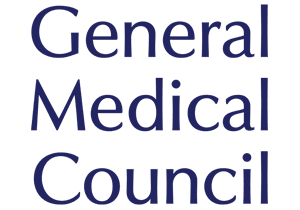
Causes and Solutions for Eczema and Psoriasis
Eczema and psoriasis are two of the most common chronic skin conditions that affect millions of people worldwide. While they share some similarities, they are distinct disorders with unique characteristics and treatment approaches.
Eczema, also known as atopic dermatitis, is a condition characterised by red, itchy, and inflamed skin. It typically appears as patches of dry, scaly skin that can become cracked and weepy when severe. Eczema often begins in childhood and can persist into adulthood, though some people may experience improvements as they age.
Psoriasis, on the other hand, is an autoimmune condition that causes the rapid build up of skin cells, resulting in thick, scaly patches on the skin’s surface. These patches, known as plaques, are often red or silvery in appearance and can be itchy or painful.
Both conditions affect a significant portion of the population. Eczema is estimated to affect up to 20% of children and 3% of adults worldwide, while psoriasis affects approximately 2-3% of the global population. These conditions can affect people of all ages, genders, and ethnicities, though certain factors may increase your risk.
Causes and Risk Factors for Eczema and Psoriasis
The causes of eczema and psoriasis are complex and not fully understood. However, research has shed light on several underlying factors that contribute to these conditions.
Causes of Eczema
The primary cause of eczema is believed to be a combination of genetic and environmental factors. If you have eczema, your skin’s barrier function may be compromised, making it more susceptible to irritants and allergens. This can lead to inflammation and the characteristic symptoms of eczema.
Genetic factors play a role in eczema. If you have a family history of eczema, asthma, or hay fever, you’re more likely to develop the condition. Specific gene mutations, particularly those involved in forming the skin barrier, have been linked to eczema.
Environmental factors can trigger or exacerbate eczema symptoms. These may include: irritants (soaps, detergents, shampoos, disinfectants, juices from fresh fruits, meats, or vegetables), allergens (dust mites, pollen, mould, pet dander), microbes (bacteria such as Staphylococcus aureus, viruses, and certain fungi), hot and cold temperatures, food allergies or sensitivities, stress and hormonal changes.
Causes of Psoriasis
Psoriasis is primarily considered an autoimmune disorder. If you have psoriasis, your immune system mistakenly attacks healthy skin cells, accelerating the skin cell production process. This results in the build up of excess skin cells on the surface, forming the characteristic plaques.
Like eczema, psoriasis has a strong genetic component. If you have a close family member with psoriasis, your risk of developing the condition is higher. However, having the genes associated with psoriasis doesn’t guarantee you’ll develop the condition.
Several factors can trigger psoriasis flare-ups or worsen existing symptoms: stress, infections (such as strep throat or skin infections), skin injury (cuts, scrapes, bug bites, severe sunburn), cold weather, certain medications (including lithium, high blood pressure medications, and antimalarial drugs), smoking, heavy alcohol consumption and obesity.
Symptoms and Diagnosis of Eczema and Psoriasis
Eczema and psoriasis can present with similar symptoms, but there are distinct characteristics that set them apart.
Eczema Symptoms
The primary symptom of eczema is itchy skin. In fact, the itch can often begin before any visible signs appear. Other common symptoms include: dry, sensitive skin, red, inflamed skin, rough, leathery, or scaly patches of skin, oozing or crusting, areas of swelling and dark coloured patches of skin.
Eczema typically appears in specific areas of the body, including:
- Inside the elbows
- Behind the knees
- On the face (especially in infants)
- On the hands and feet
Psoriasis Symptoms
The most common form of psoriasis, plaque psoriasis, is characterised by: raised, red patches of skin covered with silvery scales (plaques), dry, cracked skin that may bleed, itching, burning, or soreness, thickened, pitted, or ridged nails, swollen and stiff joints.
Psoriasis commonly affects these areas:
- Elbows
- Knees
- Lower back
- Scalp
- Face
- Palms and soles of feet
It’s important to note that symptoms can vary in severity and may come and go in cycles. You might experience periods of remission where symptoms improve or disappear, followed by flare-ups where symptoms worsen.
Eczema and Psoriasis Diagnostic
If you suspect you have eczema or psoriasis, it’s important to consult a dermatologist for an accurate diagnosis. The diagnostic process typically involves:
- Medical History: Dr Dalia will ask about your symptoms, when they started, any potential triggers, and your family medical history.
- Physical Examination: Dr Dalia will examine your skin, looking at the affected areas and noting the appearance of the rash or plaques.
- Skin Biopsy: In some cases, particularly for psoriasis, a small skin sample may be taken for microscopic examination to confirm the diagnosis.
- Patch Testing: For eczema, patch testing may be done to identify potential allergens that could be triggering your symptoms.
- Blood Tests: While not typically necessary, blood tests might be ordered to rule out other conditions or to check for specific antibodies associated with certain types of eczema.
Early and accurate diagnosis is important for several reasons:
- It allows for prompt treatment, potentially reducing the severity and frequency of symptoms.
- It helps prevent complications that can arise from untreated or improperly treated skin conditions.
- It can improve your quality of life by providing relief from symptoms and preventing further skin damage.
- In some cases, early diagnosis of these skin conditions can lead to the identification of associated health issues, allowing for comprehensive care.
Remember, while online resources can provide valuable information, they’re not a substitute for professional medical advice. If you’re experiencing persistent skin issues, it’s always best to consult with a dermatologist for proper diagnosis and treatment.
Types of Eczema and Psoriasis
Both eczema and psoriasis have several subtypes, each with its own characteristics and treatment considerations.
Eczema Types:
- Atopic Dermatitis: This is the most common form of eczema. It’s chronic and inflammatory, often starting in childhood. It’s characterised by dry, itchy skin that can become red, swollen, and cracked.
- Contact Dermatitis: This type occurs when your skin comes into contact with irritants or allergens. There are two subtypes: Irritant Contact Dermatitis – caused by direct contact with irritants like soaps or chemicals and Allergic Contact Dermatitis – an allergic reaction to substances like nickel or latex.
- Dyshidrotic EczemThis type causes small, intensely itchy blisters on the edges of the fingers, toes, palms, and soles of the feet.
- Nummular EczemCharacterised by circular patches of irritated skin that may be crusted, scaling, and extremely itchy.
- Seborrheic Dermatitis: This type affects areas with many oil-producing glands, such as the scalp, nose, and upper back. It causes scaly patches, red skin, and stubborn dandruff.
- Stasis Dermatitis: This occurs on the lower legs of people with poor circulation, typically in older adults.
Psoriasis Types
- Plaque Psoriasis: The most common form, characterised by raised, red patches covered with a silvery white buildup of dead skin cells. These plaques most often appear on the knees, elbows, lower back, and scalp.
- Guttate Psoriasis: This type appears as small, dot-like lesions. It often starts in childhood or young adulthood and can be triggered by a strep infection.
- Inverse Psoriasis: This form shows up as very red, smooth, and shiny lesions in body folds, such as under the breasts or in the armpits or groin area.
- Pustular Psoriasis: Characterised by white pustules surrounded by red skin. It can occur on any part of the body, but often on the hands or feet.
- Erythrodermic Psoriasis: A severe form that leads to widespread, fiery redness over most of the body. It can cause severe itching and pain, and make your skin come off in sheets.
- Psoriatic Arthritis: This type affects both the skin and joints. It causes joint pain, stiffness, and swelling along with the skin symptoms of psoriasis.
Treatment Options for Eczema and Psoriasis
Managing eczema and psoriasis often requires a complex approach, combining medical treatments, lifestyle changes, and self-care strategies. Dr Dalia will work with you to develop a personalised treatment plan based on the type and severity of your condition, as well as your individual needs and preferences.
Medical Treatments
- Topical Treatments
- Corticosteroids: These anti-inflammatory creams and ointments are often the first line of treatment for both eczema and psoriasis. They come in various strengths and should be used as directed by your doctor.
- Calcineurin inhibitors: Medications like tacrolimus and pimecrolimus can help reduce inflammation and are often used for sensitive areas like the face.
- Vitamin D analogues: For psoriasis, creams containing synthetic vitamin D can help slow skin cell growth.
- Retinoids: Topical retinoids can help with psoriasis by normalising skin cell growth.
- Systemic Medications
- Immunosuppressants: Certain drugs can be used for severe eczema or psoriasis that doesn’t respond to other treatments.
- Biologics: These newer drugs target specific parts of the immune system and can be highly effective for severe psoriasis or psoriatic arthritis.
- Oral retinoids: For severe psoriasis, oral retinoids may be prescribed.
- Phototherapy
- Light therapy, particularly narrow-band UVB treatment, can be effective for both eczema and psoriasis. This treatment involves exposing the skin to controlled amounts of UV light.
Alternative and Complementary Treatments for Eczema and Psoriasis
While scientific evidence is limited for many alternative treatments, some people find relief with acupuncture, herbal remedies (e.g., evening primrose oil for eczema) and dietary supplements (e.g., fish oil). Always consult with your dermatologist before trying any alternative treatments, as they may interact with your medications or cause unexpected side effects.
Prevention Tips for Eczema and Psoriasis
While it’s not always possible to prevent eczema or psoriasis entirely, there are steps you can take to reduce the likelihood of flare-ups and maintain healthier skin.
- Moisturise regularly: Keep your skin well-hydrated to maintain its barrier function. Apply moisturiser immediately after bathing to lock in hydration.
- Avoid known triggers: Once you’ve identified your triggers, take steps to avoid or minimise exposure to them.
- Manage stress: Since stress can trigger or exacerbate both conditions, incorporate stress-management techniques into your daily routine.
- Maintain a healthy lifestyle: Eat a balanced diet, exercise regularly, get adequate sleep, and avoid smoking and excessive alcohol consumption.
- Use gentle skincare products: Opt for fragrance-free, hypoallergenic products. Avoid harsh soaps and hot water, which can strip your skin of its natural oils.
- Protect your skin: Wear gloves when doing household chores or working with irritants. In cold weather, protect your skin with warm clothing.
- Control your environment: Use a humidifier in dry environments, and keep your home cool to prevent sweating, which can irritate your skin.
- Practice good hygiene: Keep your skin clean, but avoid over-washing. Pat your skin dry instead of rubbing, and apply moisturiser while your skin is still damp.
- Be sun-smart: While some sun exposure can be beneficial, especially for psoriasis, avoid sunburn. Use broad-spectrum sunscreen and protective clothing when outdoors.
- Manage other health conditions: Conditions like allergies or asthma can be linked to eczema. Keeping these under control may help manage your skin condition.
Remember, prevention is an ongoing process. Be patient with yourself and consistent with your skincare routine. What works best may change over time, so stay in communication with your dermatologist and be open to adjusting your approach as needed.
FAQs about Eczema and Psoriasis – Causes and Treatment
Are eczema and psoriasis contagious?
No, neither eczema nor psoriasis is contagious. You cannot catch these conditions from someone else or spread them to others through contact.
Can eczema or psoriasis be cured?
Currently, there is no cure for eczema or psoriasis. However, both conditions can be effectively managed with proper treatment and care.
Will I have eczema or psoriasis for life?
Both conditions are chronic, but their severity can vary over time. Some people, especially children with eczema, may experience significant improvement or even clearance of symptoms as they age.
Can diet affect my eczema or psoriasis?
While there’s no one-size-fits-all diet for these conditions, some people find that certain foods trigger flare-ups. Common triggers include dairy, eggs, and gluten for some individuals. It’s best to work with your dermatologist to identify any potential food triggers.
Can stress cause eczema or psoriasis?
Stress doesn’t cause these conditions, but it can trigger flare-ups or make symptoms worse. Stress management techniques can be an important part of your treatment plan.
Is it safe to exercise with eczema or psoriasis?
Yes, exercise is generally safe and can be beneficial for overall health. However, sweat can irritate eczema, so it’s important to shower soon after exercising and moisturise your skin.
Can I wear makeup if I have facial eczema or psoriasis?
You can wear makeup, but choose products that are fragrance-free and hypoallergenic. Always remove makeup gently and thoroughly, and moisturise your skin well.
When to See a Dermatologist for Eczema and Psoriasis
There are several situations where it’s crucial to consult a dermatologist. You should seek professional help if your symptoms are severe, persistent, or significantly impacting your quality of life. This includes cases where your skin condition is interfering with sleep, daily activities, or causing emotional distress. If you’ve tried over-the-counter treatments without success, or if your symptoms are worsening despite home care, it’s time to see a specialist. Also, consult a dermatologist if you develop signs of infection, such as increased redness, warmth, swelling, or pus in the affected areas. For those with psoriasis, it’s important to see a dermatologist if you experience joint pain or stiffness, as this could indicate psoriatic arthritis.
Take charge of your skin health today by booking a consultation with Dr Dalia at Cheshire Cosmetic Surgery. We offer personalised treatment plans using the latest advancements in dermatology to help you achieve clearer, more comfortable skin. Whether you’re seeking relief from persistent symptoms or looking for long-term management strategies, we’re here to help.
References for Eczema and Psoriasis
- Psoriasis: a brief overview – PMC
- Psoriasis – Causes – NHS
- A Review of the Clinical Trial Landscape in Psoriasis
- Work-related hand eczema
- Eczema/dermatitis
Related Conditions
- Read more about Acne and Rosacea
- Read more about Rashes
- Read more about Pigmentary Disorders
- Read more about Hair Loss
- Read more about Lip Lesion Removal
 Dr Dalia obtained her medical degree from Queen Mary University – Barts and the London School of Medicine and Dentistry, graduating with a distinction and being awarded University of London Gold Medal in Medicine (Proxime Accessit) and the Glanfield Harris Best of Gold Medalists 2012-2013 award.
Dr Dalia obtained her medical degree from Queen Mary University – Barts and the London School of Medicine and Dentistry, graduating with a distinction and being awarded University of London Gold Medal in Medicine (Proxime Accessit) and the Glanfield Harris Best of Gold Medalists 2012-2013 award.




